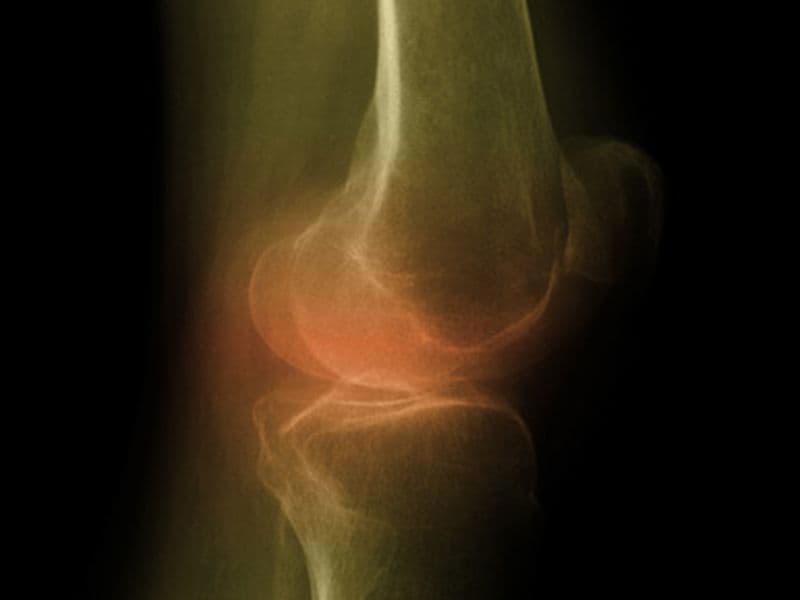THURSDAY, Aug. 22, 2019 (HealthDay News) — It may be possible to identify persons at risk for suffering a worsening in health-related quality of life (HRQoL) due to knee osteoarthritis (OA), according to a study published online July 19 in PLOS ONE.
Soili Tormalehto, from the University of Eastern Finland in Kuopio, and colleagues used data from the Osteoarthritis Initiative database to identify groups of people with mild knee OA or those at increased risk. They evaluated factors associated with changes in HRQoL and incidence of knee replacement as well as prevalence of pain medication.
The researchers identified four HRQoL trajectory groups. The majority experienced no worsening of HRQoL (“no change” group; 62.9 percent), while 9.5 percent experienced “rapidly” worsening and 17.1 percent experienced “slowly” worsening HRQoL. Just over 10 percent experienced “improving” HRQoL (10.4 percent). Rapid worsening was associated with female gender, higher body mass index, smoking, knee pain, and lower income at baseline. There was an increased risk for requiring knee replacement among patients in the rapidly and slowly worsening groups (hazard ratios, 6.2 and 3.4, respectively). The “no change” group rarely used pain medication compared with the other groups.
“HRQoL worsening was associated with several risk factors; surgical and pharmacological interventions were more common in the poorer HRQoL trajectory groups indicating that HRQoL does reflect the need for OA treatment,” the authors write.
Copyright © 2019 HealthDay. All rights reserved.



